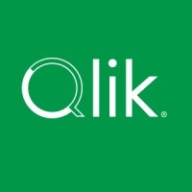

SSIS and Qlik Compose compete in the data integration and transformation domain. Qlik Compose appears to have an edge due to its superior automation capabilities, particularly beneficial for complex data transformation tasks.
Features: SSIS offers seamless integration with SQL Server and Azure, robust data cleaning, and transformation capabilities, as well as a user-friendly interface with drag-and-drop features. It excels in parallel processing for high data transfer efficiency. Qlik Compose provides advanced automation, real-time data integration, and the ability to create data marts without writing code, which differentiates it significantly. Its drag-and-drop interface and automatic data modeling are key benefits.
Room for Improvement: SSIS could enhance its initial setup process and expand its capabilities for complex transformation tasks. More robust real-time data processing and an improved user interface could be potential improvements. Qlik Compose could benefit from broader ETL functionalities, a more intuitive user interface for detailed custom configurations, and better integration options for non-SAP platforms.
Ease of Deployment and Customer Service: Qlik Compose offers a straightforward deployment process and responsive customer service, ideal for organizations with limited technical resources. SSIS, while requiring more extensive setup, integrates smoothly within Microsoft environments leveraging its familiarity and support within the Microsoft ecosystem.
Pricing and ROI: SSIS typically presents lower initial setup costs for those already in the Microsoft ecosystem, making it a cost-effective choice with its affordable licensing. Qlik Compose might require a higher upfront investment, but its advanced automation can deliver a favorable ROI in complex environments. The efficiency in data transformation tasks makes Qlik Compose a valuable long-term investment despite the initial costs.
| Product | Market Share (%) |
|---|---|
| SSIS | 3.6% |
| Qlik Compose | 1.0% |
| Other | 95.4% |


| Company Size | Count |
|---|---|
| Small Business | 3 |
| Midsize Enterprise | 3 |
| Large Enterprise | 6 |
| Company Size | Count |
|---|---|
| Small Business | 27 |
| Midsize Enterprise | 19 |
| Large Enterprise | 57 |
Qlik Sense is a powerful business intelligence tool that offers a range of features to help organizations make faster and more informed decisions. Its primary use cases include operational and financial dashboards, self-service reporting, and centralized access to cross-functional reports. The solution is praised for its mobile platform, ease of use, data-sharing capabilities, and extensibility.
Qlik Sense has helped organizations improve data literacy, reduce time consumed in complex reports, and provide widely available MI to senior stakeholders. It also enables self-service analytics, improves data quality and governance, enhances collaboration, and reduces costs.
SSIS is a versatile tool for data integration tasks like ETL processes, data migration, and real-time data processing. Users appreciate its ease of use, data transformation tools, scheduling capabilities, and extensive connectivity options. It enhances productivity and efficiency within organizations by streamlining data-related processes and improving data quality and consistency.
We monitor all Data Integration reviews to prevent fraudulent reviews and keep review quality high. We do not post reviews by company employees or direct competitors. We validate each review for authenticity via cross-reference with LinkedIn, and personal follow-up with the reviewer when necessary.